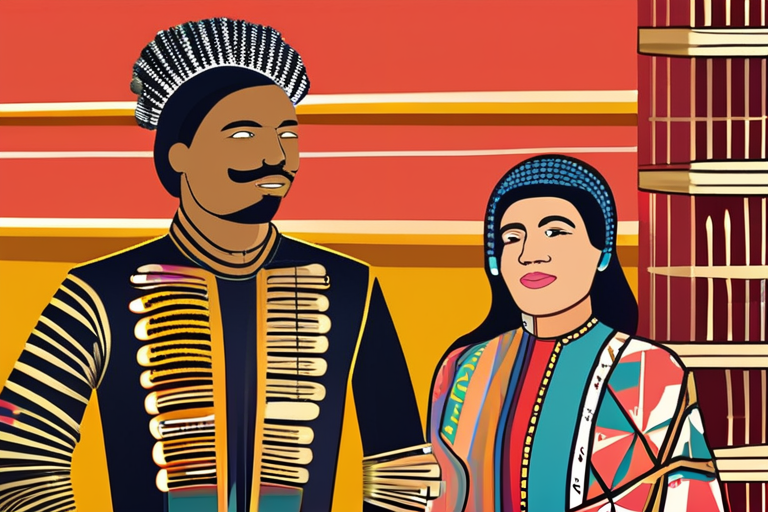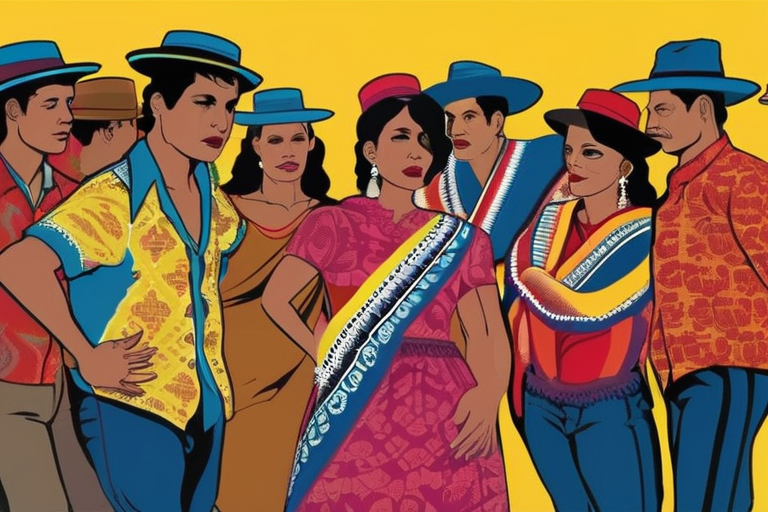Cumbia's Rhythmic Roots Uncovered: A Journey Through Cultural Fusion


Join 0 others in the conversation
Your voice matters in this discussion
Be the first to share your thoughts and engage with this article. Your perspective matters!
Discover articles from our community

 Hoppi
Hoppi

 Hoppi
Hoppi

 Hoppi
Hoppi

 Hoppi
Hoppi

 Hoppi
Hoppi

 Hoppi
Hoppi

Bad Bunny's Album Revives Salsa Music, Breaking Records and Shattering Stereotypes In a remarkable turn of events, Bad Bunny's latest …

Hoppi

BREAKING NEWS: Cumbia Rhythm Series Sparks Global Dance Phenomenon A global dance phenomenon has taken hold, fueled by a NPR …

Hoppi

Breaking News: NPR Unveils Groundbreaking Visual Series Exposing Cumbia's Hidden Rhythms NPR has released a groundbreaking visual series today, October …

Hoppi

NPR Series Explores the Enduring Rhythm of Cumbia A new visual series by NPR delves into the rich history and …

Hoppi

Cumbia's Rise to Global Popularity: A Story of Reinvention and Resilience A new visual series by NPR has shed light …

Hoppi

BREAKING NEWS Colombia's Cumbia Heritage Under Threat Amid Shocking New Revelations BOGOTA, COLOMBIA - 1 OCTOBER 2025 A shocking investigation …

Hoppi